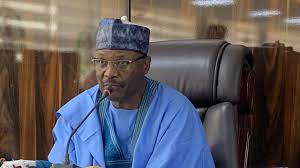By Dare Akogun
The Global Community Engagement and Resilience Fund (GCERF) has announced that it will fund grants to Iraq and Yemen, marking the first countries in the Middle East to become part of the GCERF global partnership.
Projects supported by GCERF aim to reach vulnerable individuals and communities, equipping them to be better able to counter violent extremist rhetoric and efforts to recruit new members.
Chair of the GCERF Governing Board Mr Stefano Manservisi, who made this known today in statement issued Geneva, Switzerland said the new agreements with the governments of Iraq and Yemen mark an important development in GCERF’s global support to the prevention of violent extremism.
”As GCERF expands grants to civil society organisations in the MENA region, I’m confident that our track record of earning the trust of diverse actors in countries where we invest will add strong leverage to building resilience against violent extremism.
“Based on a request from the governments of the two countries, GCERF will begin work with government ministries and local civil society organisations in Iraq and Yemen to prevent violent extremism.
“The projects will have an initial duration of three years, building in features to ensure continuity beyond the period where the countries receive GCERF funding,”he said.
Also speaking Executive Director of GCERF Dr Khalid Koser, said the organisation is pleased and gratified by the confidence signaled by invitations from the governments of Iraq and Yemen, to commence development of grants to local partners in these countries,”
“Countering and preventing violent extremism, especially through projects designed to be sustainable by local communities themselves, is essential to a path towards more peaceful and prosperous communities and societies,” he said.
The organisation said for the grant-supported projects yet to be developed in Yemen, the primary aim of initiatives will be to support youth at risk of radicalization including former child soldiers, religious leaders, and local authorities, by creating economic and social opportunities, community agency to strengthen good governance, and a culture of peace and tolerance.
“As with all countries where GCERF provides grant support, an initial detailed needs assessment will be carried out in order to define programme activities.
“In Iraq, the planned focus of grants will be to support the return of individuals from Syria and enhance their integration by engaging with host communities. In addition, the aim of grants will be to strengthen opportunities for young people in southern Iraq as alternatives to violent extremism, through livelihoods creation and community youth engagement.
In both countries the Global Community Engagement and Resilience Fund will be working closely with the relevant government authorities to operationalize the principles of co-creation and sustainability.
GCERF will also closely coordinate with UN agencies such as IOM, UNODC and UNDP, as well as local and international NGOs, to ensure the complementarity of GCERF’s grand-supported initiatives.
The new agreements with the governments of Iraq and Yemen bring the number of countries receiving GCERF support to 19 since the grant-making organisation was launched in 2014. To date, projects supported by GCERF have reach nearly three million individuals at risk through 275 local partners across the globe.





